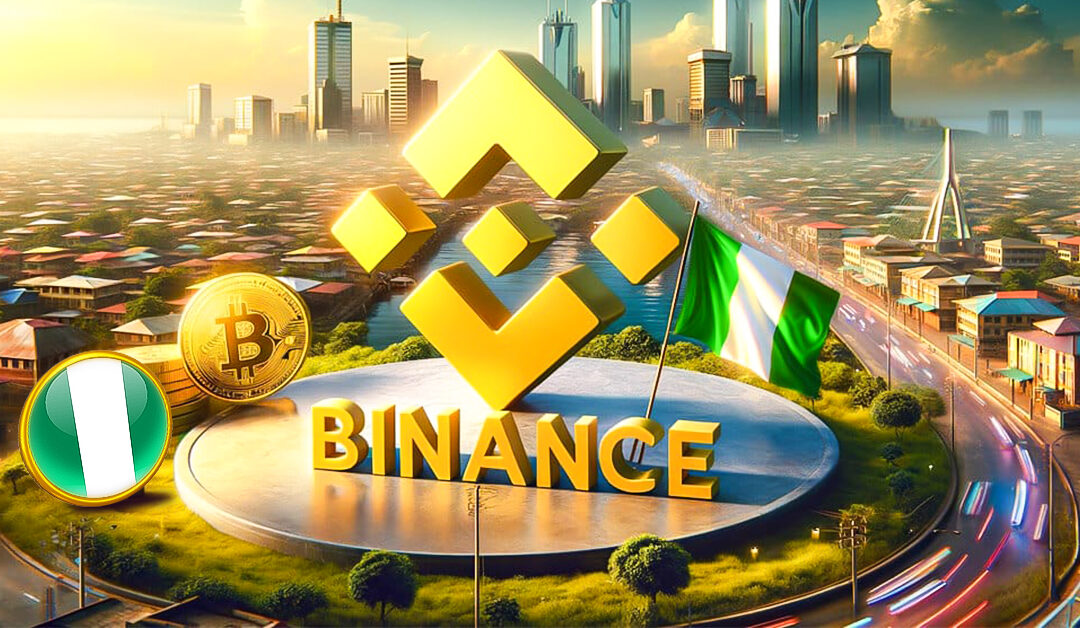In the world of finance, drama often unfolds when innovation clashes with regulation. The recent events in Nigeria provide a perfect case study of this dynamic. The Nigerian government has reportedly detained two senior executives at Binance, the global cryptocurrency exchange, amid a crackdown on cryptocurrency platforms that are perceived to be undermining the Naira in the foreign exchange market
Facing a Forex Crisis
Nigeria’s Central Bank Governor, Olayemi Cardoso, revealed that approximately $26 billion has passed through Binance Nigeria, raising concerns over the traceability of these funds. This revelation comes at a time when Nigeria is grappling with a crippling foreign exchange crisis, seeking ways to restrict capital outflows as the Naira hits record lows.
Binance’s Compliance Efforts
In response to the regulatory pressures, Binance has adopted a USDT price cap to align with local rules in Nigeria³. This move is part of Binance’s efforts to cooperate with local authorities and regulators, demonstrating the complexities that arise when global digital platforms intersect with national financial policies.
Naira’s Removal from Binance’s Platform
Binance’s decision to remove the Naira from its P2P platform grabbed attention. This action followed regulatory suspicions of forex manipulation by crypto exchanges, contributing to Naira devaluation concerns. It highlights the challenges faced by crypto platforms navigating regulatory landscapes, especially in emerging markets like Nigeria.
Impact on Traders and the Market
The situation has escalated to the point where crypto exchanges in Nigeria have ceased Naira purchases of USDT and USDC amid Central Bank scrutiny. Traders on Binance’s P2P platform are currently restricted from selling USDT above a set cap, leading to blocked accounts for those attempting to sell above the imposed limit.
Government Crackdown and Investigation
Nigeria’s Central Bank Governor, Olayemi Cardoso, sounded alarms about illicit financial flows through cryptocurrency exchanges, citing a staggering $26 billion passing through Binance Nigeria in a year. The government, backed by anti-corruption agencies and the police, has launched investigations into cryptocurrency platforms to curb forex rate distortions.The detention of two senior Binance executives upon their arrival in Nigeria underscores the severity of the government’s stance. This move coincided with Nigeria’s ban on several cryptocurrency trading websites in response to the rapid devaluation of the Naira and soaring inflation rates.
Community Response and Future Outlook
Despite government crackdowns, Nigeria’s young, tech-savvy population remains pro-crypto, highlighting the reliance on cryptocurrencies for cross-border transactions. Prominent tech entrepreneur Victor Asemota emphasized the inevitability of crypto’s persistence, urging governments to provide alternative, efficient channels rather than resorting to bans.
As tensions between Binance and Nigerian authorities persist, the global crypto community watches closely. Binance’s commitment to engaging with regulators and addressing concerns underscores the evolving nature of the crypto landscape.
Looking Ahead
As the drama continues to unfold, the implications for the global cryptocurrency market and the Nigerian economy are significant. The actions taken by the Nigerian Central Bank could set a precedent for how other nations approach the regulation of digital currencies. Meanwhile, the crypto community watches closely, awaiting the next developments in this unfolding story.
Conclusion
The drama surrounding Binance, Nigeria’s Central Bank, and the Naira epitomizes the clash between innovation and regulation in the digital finance realm. As cryptocurrency exchanges navigate regulatory uncertainties, the future of crypto in Nigeria hangs in the balance.As the saga unfolds, it underscores the need for dialogue, cooperation, and regulatory clarity to foster a sustainable and inclusive crypto ecosystem. Ultimately, how this standoff resolves will shape not only Nigeria’s crypto landscape but also global perceptions of digital currencies and their place in the financial world.
